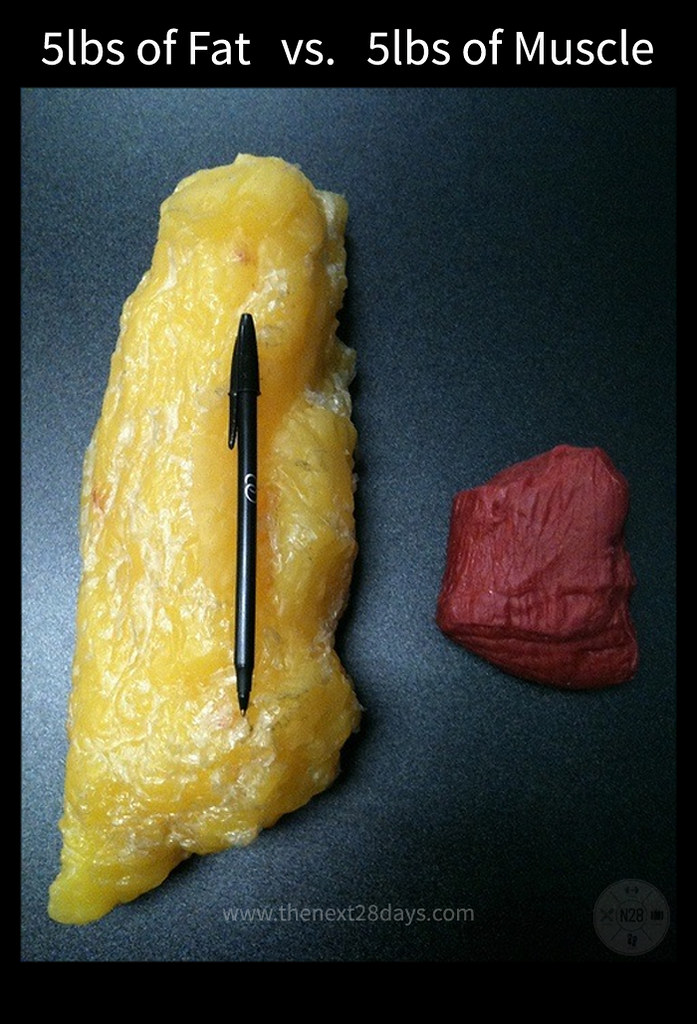
We often use words like ‘bad,’ ‘worse,’ and ‘worst’ to describe everything from a tough day to a regrettable decision. These seemingly simple terms are incredibly powerful, serving as our primary way to indicate escalating degrees of negativity. In the realm of health and nutrition, understanding this spectrum, particularly what truly qualifies as ‘the worst,’ becomes profoundly important for our well-being. It’s about recognizing when a food choice isn’t just ‘bad’ but is actively detrimental, pushing our bodies from a state of ‘worse’ to ‘the worst’ in terms of potential health outcomes. This is where expert guidance becomes invaluable, helping us navigate the often confusing landscape of dietary advice.
Indeed, ‘worse’ is the comparative form, signifying ‘more bad,’ often when comparing two things or noticing a deterioration. For example, your current snack might be bad, but the next one could be worse. However, ‘worst’ is the superlative form, denoting ‘most bad,’ reserved for comparing more than two things or declaring something as the absolute most extreme negative option. When we talk about foods being ‘the worst,’ we’re not just making a casual judgment; we’re identifying items that stand out in their capacity to harm, especially when supported by the firsthand experience of medical professionals. This distinction is crucial as we delve into the world of dietary choices that impact our most vital organs.
After two decades of dedicated work treating heart disease, clogged arteries, and metabolic dysfunction, a consistent pattern emerged for one cardiologist. Many patients, despite their best efforts with exercise and stress management, found themselves facing serious cardiovascular issues. The underlying culprit, surprisingly, often boiled down to everyday food choices. These weren’t always obvious offenders; instead, many were marketed as ‘heart smart,’ ‘plant-based,’ or ‘low-fat,’ obscuring their true impact. This expert perspective underscores that behind the appealing buzzwords are ingredients that relentlessly fuel inflammation, dangerously spike blood sugar, and quietly, yet severely, damage your arteries over time. It’s a stark reminder that some of the most harmful foods in the American diet don’t come with explicit warning labels, making informed choices absolutely essential for protecting your heart.
This cardiologist reveals that there are nine American foods they wouldn’t consume under any circumstances, not out of extremism, but because of the direct, detrimental effects witnessed on the human heart. This isn’t just about fleeting discomfort; it’s about cumulative damage that can lead to severe, long-term health problems. So, if you’re ready to make a tangible difference in your cardiovascular health and empower yourself with knowledge, let’s explore these nine pivotal foods. Understanding why they are considered ‘the worst’ by someone who sees their consequences daily is the first, most powerful step toward a healthier future. It’s time to equip yourself with the insights that can transform your plate and, ultimately, your heart health.

1. **Sugary Breakfast Cereals**They appear utterly harmless, designed with vibrant, smiling cartoon mascots that capture our attention and, perhaps most deceptively, sometimes even carry what seem to be credible health claims. Yet, upon closer inspection and through the lens of a cardiologist, most of these breakfast staples are nothing short of desserts cunningly disguised. It’s a comparison that truly hits home when you realize that starting your day with a bowl of these cereals is metabolically akin to indulging in a glazed donut – a sugary confection not typically associated with a healthy breakfast choice.
The immediate impact of such a morning ritual is often felt as a pronounced sugar spike. This isn’t just about feeling a little groggy by mid-morning; it’s a significant physiological event. This rapid influx of sugar triggers a substantial surge in insulin, a hormone crucial for regulating blood sugar. When insulin is constantly surging, it puts your entire metabolism into overdrive, forcing your body to work harder to process this sudden energy load. It’s a cycle that, when repeated daily, begins to take a serious toll on your system.
Over time, this relentless metabolic overdrive and chronic insulin surges contribute significantly to the wearing down of your vascular system, the intricate network of blood vessels vital for heart health. The cardiologist, having observed this firsthand in countless patients, has seen a direct link between this seemingly innocuous morning habit and severe health complications. These include the development of insulin resistance, a precursor to type 2 diabetes, persistent chronic fatigue, and a range of cardiovascular complications that directly threaten heart health. It’s a sobering revelation that what starts as a quick breakfast can quietly undermine your long-term health.
Given the profound impact, the recommendation from the expert is clear and actionable. Instead of falling prey to the allure of sugary cereals, opt for steel-cut oats, richly adorned with fresh berries and a sprinkle of cinnamon. This alternative isn’t just a swap; it’s an upgrade. It delivers real fiber, which aids digestion and stabilizes blood sugar, along with potent antioxidants from the berries. The result is stable, sustained energy that powers you through your morning without the dramatic highs and crashes, providing genuine nutritional value that supports, rather than sabotages, your heart.
Read more about: Seriously Where Did They Go? 12 Beloved Cereals That Vanished From Our Tables

2. **Processed Deli Meats**In our fast-paced world, processed deli meats have become a seemingly indispensable staple in many households, prized for their portability and undeniable convenience. They offer a quick solution for lunches and snacks, easily fitting into busy schedules. However, beneath this facade of ease and efficiency, this ubiquitous sandwich filler harbors a significant “dark side” that demands our attention, particularly when considering its impact on long-term health and cardiovascular well-being.
A primary concern stems from the way these meats are preserved. Deli meats are routinely treated with nitrates and nitrites, chemical compounds integral to their extended shelf life and appealing color. While effective for preservation, these substances are far from benign. Once ingested, they can undergo a transformation within the body, converting into potentially carcinogenic compounds. This conversion represents a serious health risk, extending beyond mere digestive discomfort to something far more insidious.
The health implications of these converted compounds are multifaceted and severe. They don’t just elevate an individual’s cancer risk, a concern in itself, but they also significantly impact cardiovascular health. These substances have been shown to elevate blood pressure, putting undue strain on the heart and arterial system. Furthermore, they actively promote long-term arterial damage, chipping away at the integrity of blood vessels that are critical for healthy blood flow. It’s a silent, progressive harm that often goes unnoticed until significant damage has occurred.
This cardiologist offers a poignant and memorable observation: “If your ‘meat’ has a shelf life longer than your dog, your arteries are paying the price.” This vivid analogy powerfully communicates the degree of processing involved and the inherent health compromise. It serves as a potent reminder that the convenience of a long-lasting, pre-packaged meat product comes at a considerable cost to your internal health, particularly the delicate network of your arteries, which bear the brunt of these chemical additives over time. The message is clear: the less a food resembles its natural state, the more caution is warranted.
For a truly heart-healthy and safer alternative, the advice is refreshingly simple and empowering: take control by roasting your own turkey or chicken breast. This allows you to choose lean, unprocessed cuts of meat and prepare them without the addition of harmful preservatives. Slicing it fresh not only ensures a superior taste and texture but, most importantly, eliminates the risk associated with nitrates and nitrites. It’s a proactive step that protects your arteries and supports your cardiovascular system, transforming a potentially harmful staple into a genuinely nourishing one.
Read more about: Unmasking the Metabolic Saboteurs: 14 Sneaky Habits Quietly Killing Your Metabolism and What to Do About Them

3. **Soda and Energy Drinks**These seemingly innocuous beverages, widely consumed for their refreshing qualities or a quick burst of energy, actually deliver a devastating “double blow” to your system. They unleash a cascade of negative physiological responses, starting with a rapid and dramatic spiking of blood sugar levels. This intense sugar surge forces your adrenal glands into overdrive, taxing these vital organs responsible for managing stress. Concurrently, they flood your body with a plethora of inflammatory compounds, setting the stage for systemic stress and damage that can impact numerous bodily functions, far beyond a momentary energy boost.
And what about the “diet” versions, often lauded as a healthier alternative for those watching their sugar intake? According to the cardiologist, these are “often worse.” The deceptive allure of zero calories comes at a different, yet equally significant, cost. Artificial sweeteners, prevalent in these diet drinks, have been shown to disrupt the delicate balance of your gut microbiome. This intricate ecosystem of microorganisms plays a monumental role not only in digestion but also in metabolism and, crucially, in maintaining optimal heart health. A disturbed gut microbiome can have far-reaching negative effects, counteracting any perceived benefits of avoiding sugar.
The overall impact of these beverages extends beyond immediate discomfort or metabolic disruption. The cardiologist notes that they “not only do they age you faster, but they can make you feel worse while doing it.” This speaks to their cumulative effect on cellular health and overall vitality. The combination of sugar spikes, adrenal fatigue, systemic inflammation, and gut microbiome imbalance creates an environment ripe for accelerated aging and a general sense of malaise. It’s a testament to how seemingly small choices in daily consumption can have profound, long-term consequences on your health and how you feel.
Recognizing these significant health risks, the expert recommendation is to choose genuinely hydrating and healthful alternatives. Sparkling water, enlivened with a fresh squeeze of lemon, offers a refreshing effervescence without any added sugars or artificial ingredients. Another excellent option is iced herbal tea, which provides flavor and hydration, often with beneficial antioxidants, without the detrimental effects of sodas or energy drinks. These choices support your metabolism, gut health, and cardiovascular system, ensuring you genuinely feel better and healthier without compromising your long-term well-being.
Read more about: Fizzled Out & Forgotten: 12 Classic Soft Drinks That Vanished from Grocery Store Shelves

4. **Deep-Fried Fast Foods**Deep-fried fast foods represent a quintessential American indulgence, celebrated for their convenience, affordability, and undeniably satisfying crunch. From crispy fries to golden-brown chicken, these items are ubiquitous in our diets and culture. However, beneath their tempting exterior lies a nutritional wasteland that directly contradicts the principles of heart health, presenting a significant challenge for anyone striving for optimal cardiovascular well-being. The pleasure derived from these foods is often fleeting, while their detrimental effects can be long-lasting and profound.
The cardiologist’s overarching concerns about inflammation and arterial damage are directly relevant to deep-fried fast foods. These items are typically cooked in vast quantities of unhealthy fats and industrial seed oils, which, when heated to high temperatures, can become even more problematic. These oils are often rich in omega-6 fatty acids, which in excessive amounts, contribute significantly to chronic inflammation throughout the body. This systemic inflammation is a major driver of cardiovascular disease, directly fueling the very processes that silently damage your arteries over time.
Beyond the inflammatory fats, deep-fried fast foods are generally calorie-dense but nutrient-poor. They offer little in the way of essential vitamins, minerals, or fiber, yet pack a heavy punch of unhealthy calories. This combination contributes not only to weight gain and obesity but also exacerbates metabolic issues. Frequent consumption can lead to insulin resistance and put a strain on the metabolic system, echoing the cardiologist’s warnings about sugar spikes and metabolic overdrive. The cumulative effect is a body struggling to maintain balance, with the cardiovascular system bearing much of the burden.
The message is clear: the momentary satisfaction from deep-fried fast foods comes at a high price for your heart. Instead of succumbing to their allure, consider healthier preparation methods and whole-food alternatives. Opt for baked, grilled, or air-fried options that utilize minimal, healthier fats like olive oil. Prioritize meals built around fresh vegetables, lean proteins, and complex carbohydrates. Making these informed substitutions can significantly reduce your intake of harmful fats and inflammatory compounds, providing real nourishment that actively supports your cardiovascular health rather than quietly damaging it.
Read more about: If You Have High Cholesterol: 15 Foods to Rethink for Better Heart Health

5. **Excessive Refined Sugars in Everyday Staples**While sugary breakfast cereals and sodas are obvious culprits, the pervasive danger of excessive refined sugars extends far beyond these easily identifiable items, stealthily infiltrating a surprising array of everyday staples in the American diet. These hidden sugars lurk in places you might least expect, from condiments like ketchup and salad dressings to seemingly innocent pasta sauces, bread, and even savory crackers. This widespread presence means that even individuals who consciously avoid desserts can still accumulate significant amounts of refined sugar throughout their day, unknowingly contributing to their metabolic load.
The insidious nature of these hidden sugars lies in their cumulative effect. Even small amounts added to various processed foods can combine to create a constant state of elevated blood sugar, preventing the body from achieving a stable metabolic equilibrium. This continuous assault on the system contributes directly to chronic low-grade inflammation, a silent but powerful force that fuels many chronic diseases, including cardiovascular issues. The cardiologist’s concern about ingredients that “fuel inflammation” and “spike blood sugar” is directly applicable to this pervasive dietary challenge.
Consistent exposure to these refined sugars, even in seemingly moderate doses across various foods, puts an immense strain on the body’s ability to regulate insulin. This constant demand can gradually lead to insulin resistance, where cells become less responsive to insulin’s signals. As the cardiologist has observed in patients, insulin resistance is a critical gateway to metabolic dysfunction, chronic fatigue, and an increased risk of cardiovascular complications, including the quiet damage to arteries over time. It’s a vicious cycle where processed foods, engineered for taste, inadvertently undermine health.
To effectively combat this pervasive issue, becoming an astute label reader is paramount. Scrutinize ingredient lists for various names of sugar—high-fructose corn syrup, dextrose, maltose, and many others—which indicate added sweetness. Prioritize whole, unprocessed foods whenever possible, as they naturally contain sugars balanced with fiber, which mitigates rapid blood sugar spikes. Opt for unsweetened versions of common products like yogurt and sauces, adding natural flavors through herbs, spices, or fresh fruit instead. This conscious effort to minimize hidden refined sugars is a crucial step towards safeguarding your metabolic and heart health, actively preventing the systemic wear and tear that the cardiologist frequently witnesses in their practice.
Read more about: Mediterranean Diet vs. Keto: Unpacking the Science for Your Ultimate Long-Term Weight Loss Strategy

6. **Artificial Additives and Preservatives**Beyond the specific nitrates and nitrites found in deli meats, the American food supply is awash with a broad spectrum of artificial additives and preservatives, meticulously engineered to extend shelf life, enhance flavor, or improve texture. These synthetic compounds, while seemingly innocuous on an ingredient list, often represent a hidden threat to our metabolic and cardiovascular health. They are, in essence, foreign invaders to our intricate biological systems, designed for industrial efficiency rather than human well-being. The cardiologist’s unwavering stance against such substances stems from observing their cumulative and often subtle damage to the body’s vital functions, contributing to the systemic wear and tear that quietly undermines long-term health.
The pervasive presence of artificial sweeteners in “diet” beverages, for example, offers a telling glimpse into the problems posed by these additives. While they promise zero calories and a guilt-free indulgence, the expert warns they are “often worse,” precisely because they disrupt the delicate balance of your gut microbiome. This vast internal ecosystem, a bustling community of microorganisms, is far more than just a digestive aid; it plays a monumental role in metabolism and, crucially, in maintaining optimal heart health. A disturbed gut microbiome can lead to far-reaching negative effects, creating an internal environment that is ripe for inflammation and metabolic dysfunction.
It’s a stark reality that many of these artificial components are designed to deceive our senses, creating hyper-palatable foods that encourage overconsumption, further exacerbating the strain on our bodies. The cardiologist’s observations highlight that these ingredients, though perhaps not immediately causing dramatic symptoms, relentlessly fuel inflammation and can spike blood sugar, albeit indirectly through metabolic disruption. This sustained assault can quietly, yet severely, damage your arteries over time, making an informed choice about avoiding these chemical concoctions absolutely essential for protecting your heart and ensuring a healthier, more vibrant future. To truly safeguard your cardiovascular system, prioritizing whole, unprocessed foods becomes a paramount strategy, allowing you to sidestep the labyrinth of artificial ingredients that offer little nutritional value while posing significant risks.
Read more about: RFK Jr.’s War on Ultra-Processed Foods: A Deep Dive into What It Means for Your Diet and America’s Health

7. **Unhealthy Fats and Industrial Oils**While the previous discussion highlighted deep-fried fast foods as a notorious offender, the cardiologist’s concern extends broadly to the ubiquitous presence of unhealthy fats and industrial oils across the American diet, even in dishes not explicitly labeled as “fried.” These oils, often derived from corn, soy, or canola, have become staples in processed snacks, baked goods, and restaurant cooking, largely replacing traditional, healthier fats. Their widespread inclusion is a silent architectural flaw in our modern diet, contributing significantly to a myriad of health complications that the cardiologist has witnessed firsthand in patients struggling with heart disease, clogged arteries, and metabolic dysfunction.
The primary danger of these industrial oils, particularly when consumed in excess and heated to high temperatures, lies in their capacity to promote chronic inflammation throughout the body. This isn’t just a fleeting discomfort; it’s a systemic problem, a low-grade fire that continuously smolders, silently damaging cells and tissues. The cardiologist’s perspective underscores that this persistent inflammation is a major driver of cardiovascular disease, directly fueling the very processes that compromise the integrity of your arteries over time. It’s a relentless, quiet deterioration that often goes unacknowledged until significant, often irreversible, damage has occurred, making careful attention to fat sources absolutely crucial for optimal heart health.
Furthermore, the overreliance on these unhealthy fats contributes to a diet that is calorie-dense but profoundly nutrient-poor. They provide little in the way of essential vitamins, minerals, or beneficial compounds, yet they contribute substantially to the body’s overall caloric load. This imbalance exacerbates metabolic issues, echoing the cardiologist’s warnings about sustained metabolic overdrive and its toll on the vascular system. Consistently choosing these fats can contribute to insulin resistance and an increased risk of obesity, creating a challenging environment for the heart to thrive. Embracing healthier, natural fat sources, such as those found in avocados, nuts, seeds, and olive oil, becomes a powerful countermeasure against the cumulative damage inflicted by industrial oils, actively supporting a resilient and healthy cardiovascular system.
Read more about: Unmasking the Metabolic Saboteurs: 14 Sneaky Habits Quietly Killing Your Metabolism and What to Do About Them

8. **Ultra-Processed Grains and Refined Carbohydrates**The nutritionist’s warning against excessive refined sugars extends naturally to the vast category of ultra-processed grains and refined carbohydrates, which form a substantial and often overlooked component of the American diet. These aren’t just sugary cereals; they encompass a wide array of products, including white bread, pastries, most commercial baked goods, and many types of pasta and snack crackers. Stripped of their beneficial fiber, vitamins, and minerals during processing, these grains behave metabolically much like pure sugar, presenting a significant and pervasive challenge to maintaining stable blood sugar levels and overall metabolic equilibrium.
The continuous consumption of these highly processed carbohydrates triggers a rapid and pronounced surge in blood glucose, mirroring the dramatic sugar spikes caused by sodas and sugary cereals. This immediate influx forces the body’s insulin system into a constant state of vigilance and overdrive. Over time, this relentless demand on insulin-producing cells can lead to insulin resistance, a critical metabolic dysfunction where the body’s cells become less responsive to insulin’s crucial signals. As the cardiologist repeatedly emphasizes, insulin resistance is a gateway to chronic fatigue, metabolic syndrome, type 2 diabetes, and, most pertinent to heart health, the quiet and progressive damage to arteries and the vascular system.
The cumulative effect of a diet rich in ultra-processed grains and refined carbohydrates is a system perpetually under stress, struggling to maintain balance. It’s a vicious cycle where convenience-driven foods, engineered for taste and shelf stability, inadvertently undermine long-term health. The expert’s counsel is not merely about avoiding specific items but about recognizing broader dietary patterns that relentlessly fuel inflammation and spike blood sugar, leading to severe, long-term health problems. To mitigate these risks, a foundational shift towards whole grains—rich in natural fiber—alongside a focus on vegetables, lean proteins, and healthy fats, is indispensable for safeguarding metabolic and heart health, empowering individuals to make choices that genuinely nourish rather than harm.
Read more about: RFK Jr.’s War on Ultra-Processed Foods: A Deep Dive into What It Means for Your Diet and America’s Health

9. **Hidden Inflammatory Ingredients for Optimal Heart Health**Drawing from the cardiologist’s two decades of confronting heart disease and clogged arteries, a profound pattern emerges: many seemingly innocent ingredients, often hidden within processed foods, act as silent provocateurs, triggering and sustaining chronic inflammation throughout the body. This goes beyond just unhealthy fats or refined sugars, encompassing a more insidious array of components that, individually or in combination, create a systemic inflammatory burden. It’s a testament to how complex food matrices can obscure dangers, making the pursuit of optimal heart health a constant vigilance against these covert inflammatory agents.
The expert’s observations underline that ingredients which “relentlessly fuel inflammation” are pervasive, silently chipping away at our health without obvious immediate symptoms. This chronic, low-grade inflammation is not merely an uncomfortable sensation; it is a fundamental process underlying metabolic dysfunction and arterial damage. The cardiologist has witnessed firsthand how this systemic stress contributes to the wearing down of the vascular system, silently but severely damaging your arteries over time. It’s a crucial understanding that protecting your heart isn’t just about avoiding overt culprits but also identifying and eliminating the less obvious dietary elements that contribute to this destructive internal environment.
Ultimately, the comprehensive message from this cardiologist is a powerful call to action: understanding these nine pivotal foods, especially the insidious nature of hidden inflammatory ingredients, is the most powerful step toward a healthier future. The long-term consequences of these dietary choices — from insulin resistance to chronic fatigue and cardiovascular complications — are a direct result of cumulative damage that can lead to severe, long-term health problems. Equipping oneself with the knowledge to identify and avoid these “worst” foods, prioritizing a diet of whole, unprocessed foods, and becoming an astute label reader are essential strategies. This proactive approach not only transforms your plate but, ultimately, fortifies your heart health, moving you from a state of ‘worse’ to your absolute best.
Read more about: Unlock Your Peak Performance: 13 Common Diet Mistakes Professional Athletes Confidently Conquer
The insights shared by this cardiologist serve as a potent reminder that our daily food choices hold immense power over our long-term health, particularly for our most vital organ—the heart. By understanding and actively avoiding these nine “worst” foods, we can sidestep the insidious cycle of inflammation, blood sugar spikes, and arterial damage that quietly compromises well-being. This isn’t about extreme deprivation; it’s about informed empowerment, transforming our plates into powerful tools for prevention and vitality. Embracing whole, nourishing alternatives and making conscious decisions about what we consume is the clearest path to safeguarding our cardiovascular system and charting a course towards a healthier, more energized future.




